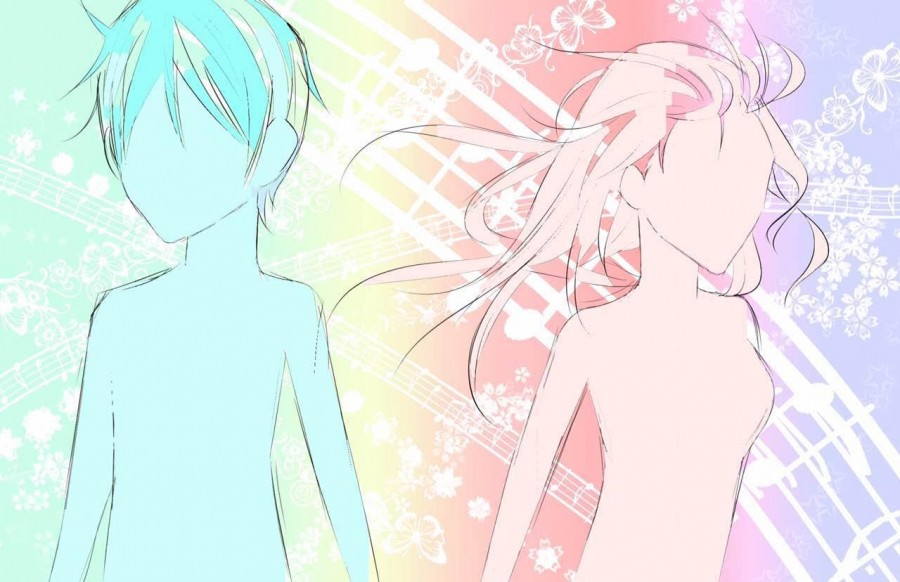Social Justice Arises from an Unlikely Source
February 23, 2016
The stereotype of teenagers as superficial and ignorant has long plagued society. It has been especially prevalent in the entertainment industry as the media depicts young stars as vain airheads who only care about their careers and how others perceive them. However, many teen celebrities are now using their fame to shed light on meaningful issues in society.
Rowan Blanchard, 14, who plays Riley Matthews in Girl Meets World on the Disney Channel, has been an outspoken and prominent advocate for gender equality: “When I was in preschool, I played catch with the other kids and I was told I threw like a girl. I’ve identified as a feminist ever since.”
She even wrote an essay praising intersectional feminism on Tumblr and frequently utilizes other social media, including Twitter (where she came out as queer) and Instagram, to share her thoughts.
“All activism is good activism,” Justin Kransdorf ’16 praises. “I think it’s great that she stands up for what she believes in.”
In June, Blanchard spoke at the 2015 Annual Conference of the U.S. National Committee for United Nations Women and discussed gender inequality, the lack of girls interested in STEM (Science, Technology, Engineering, and Math) fields, and the objectification of females, stating, “In a country that can achieve marriage equality, shouldn’t gender equality be next?”
Amandla Stenberg, 17, is best known for her role as Rue in The Hungers Games, for which she was nominated for Outstanding Supporting Actress at the NAACP Image Awards. Not only did she direct a short film called “The Yellow Wallpaper,” which focuses on mental illness, and is openly bisexual, but she also frequently denounces the appropriation of African-American culture, especially in pop culture.
Stenberg also filmed a video titled “Don’t Cash Crop on My Cornrows” for a history class, asserting, “Appropriation occurs when a style leads to racist generalizations or stereotypes where it originated, but is deemed as high fashion, cool, or funny when the privileged take it for themselves. Appropriation occurs when the appropriator is not aware of the deep significance of the culture that they are partaking in.” She cites hip-hop and cornrows as some aspects of African-American culture that have been appropriated by many people and celebrities.
In the Ridge community, many students have expressed admiration or respect for these public figures. “I really admire how teen celebrities like Amandla Stenberg and Rowan Blanchard use their fame to raise awareness about important issues, like cultural appropriation and coming out as LGBTQ. I think celebrities such as the above two are great role models for the successive generations, as they teach younger kids about creating a more sensitive and accepting environment for minorities of gender, race, and sexuality,” Emily Arakawa ’16 lauds.
Stenberg also criticizes the “angry black girl” stereotype, encouraging other African-American women to speak their minds, despite criticism from others: “It can be really discouraging to see how far we still have to go and how much work still needs to be done before we can create a world where we’re all judged by how we are and not how we look, but I’m strengthened every day because I’m still here, I’m surviving, and I’m using my voice.”
Zendaya Coleman, 19, a singer and actress currently starring in Disney Channel’s Shake it Up and K.C. Undercover, has supported many initiatives, including race equality and gender equality. After her visit to Africa to return to her roots, she organized a Crowdrise campaign and raised over $50,000 for three brothers that she met in South Africa who lost their parents to AIDS.
“I think it’s really impressive that she finds time between her crazy Hollywood life to be politically and socially active, especially when it comes to racial equality and giving back to those who aren’t as fortunate as she is,” Devon McKeon ’17 commends.
In July 2015, Coleman did an entire interview with Nylon Magazine about the problems with black appropriation, and she even appeared on the cover of Ebony magazine alongside other advocators for social justice. As a supporter of feminism and female power, she revealed on Instagram original photos of models that Modeliste magazine had retouched, castigating their stark use of Photoshop and stressing the negative effect that this type of editing and unrealistic expectations can have on young girls. Coleman has explained her philosophy to the public, saying, “Don’t try hard to fit in, and certainly don’t try so hard to be different… just try hard to be you.”
“I think people discredit teenagers and how wise they can be. Sometimes I meet teenagers who are much wiser than many adults I’ve met, because they haven’t let any insecurities or doubts about themselves get in the way of their thoughts,” Amandla Stenberg states. She, Blanchard, and Zendaya all epitomize a positive trend occurring in media: the early exposure of young stars to current issues, allowing them to act as idols and encourage fans to become more aware of critical topics that profoundly affect their own lives.


carly barton • Feb 29, 2016 at 2:23 pm
I think it was interesting to hear the opinion of Riley Matthews and how she was able to speak her mind about stereotypes.
Alana • Feb 29, 2016 at 1:49 pm
I agree with the fact that teenagers are often discredited for their wisdom.
Mr. Thorp • Feb 29, 2016 at 1:41 pm
I enjoyed the topic. Nice job taking on the stereotype of the disinterested teen.